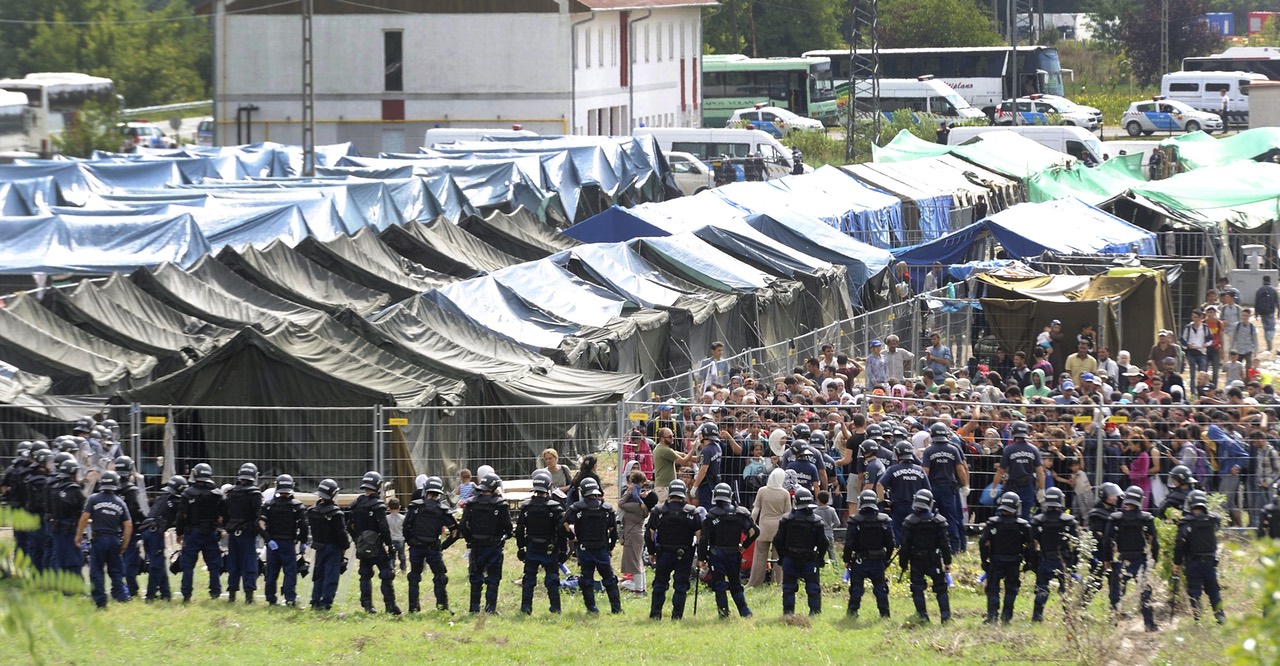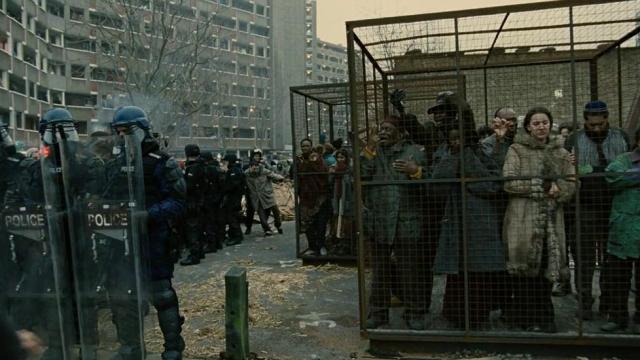We often use old sci-fi movies as reference points for our own hopes and fears about our present reality. That computer interface is so Minority Report, we might say. That food is something out of Soylent Green. That building is so Jetsons. It’s imperfect, but it’s a shorthand to talk about the way that the world is changing, for better and for worse.
And given the humanitarian crisis in Syria, it seems our most popular point of reference in the spring of 2015 is the 2006 film Children of Men.
Based on P.D. James’s 1992 novel, the film version of Children of Men takes place in the dystopian world of Britain in 2027. Inexplicably, everyone in the world has become infertile and the planet has descended into chaos. The UK still has a functioning government, but London is a brutal police state where everyone is miserable, yet they’re still trying to live some kind of normal existence. Desperate refugees from around the world flock to Britain, but they’re caged and processed like cattle.
Why then are people in 2015 making comparisons to this movie that’s nearly a decade old? Because it’s hard to tell the difference between the screenshots of Children of Men and photos of Syrians seeking refugee status in countries around the world.

Migrants and Hungarian police officers in Roszke (Photo: Zoltan Gergely Kelemen/MTI via AP)
Syrians are fleeing to Austria, to Germany, to Sweden, to the UK — they’re going anywhere to search for a better life. Above, we see a photo of a “reception centre” in Budapest, Hungary where roughly 300 people escaped today. About 3000 Syrian refugees were on a train bound for Sopron near the border with Austria before the train was stopped by Hungarian police.
“In the interests of rail travel security the company has decided that until further notice, direct train services from Budapest to western Europe will not be in service,” Hungarian Railways said in a statement.
The fighting in Syria has been going on for four years now. But there’s no end in sight. And as people flee, the scenes of refugees become more and more surreal. Governments set up blockades, police give orders, and fences are set up to keep people in line.
The world just keeps on looking more and more like “Children of Men.” http://t.co/WZ8F1Hltwe
— Dave Bry (@davebry9) September 3, 2015
After the attacks of 11 September, 2001, countless people described that day as if they were watching a movie. Because in so many ways, they’d seen those scenes before — terrorists doing the unthinkable; other human beings causing chaos and destruction and death on such a large scale that the brain can hardly process it as anything but fiction. But it was real. And even writing about this current humanitarian crisis with mere comparisons to a movie still feels like trivializing what’s really going on.
this video from @MattMcBradley shows distressing scenes from #hungary of the situation at roszke camp pic.twitter.com/zhShoxhWut
— Megan Specia (@meganspecia) September 4, 2015
I contemplated not writing this post, out of fear that I would make light of the suffering currently being endured by thousands. But that’s what we’ve always done to process the world around us.
There’s no easy solution to the current humanitarian crisis. But the first step toward alleviating some of this suffering might lie in encouraging wealthier nations to make their refugee policies less like dystopian fiction. Until then, we’ll continue to lament the fact that so much of our world really does look like Children of Men.
